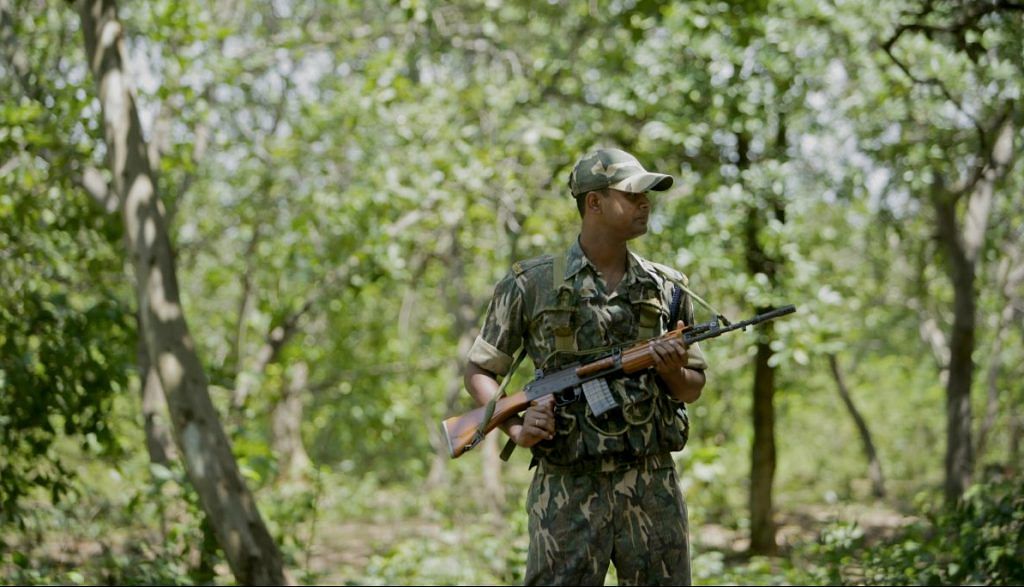Soon after becoming the chief minister in May 2011, Mamata Banerjee initiated peace talks with the Maoists who had been holding out in Junglemahal, an area stretching over Bankura, Birbhum, Purluia and parts of West Midnapur districts. The talks failed within months. The namesake of Leo Tolstoy’s masterpiece, War and Peace, which surfaced in the Bombay High Court recently, is a collection of essays and grassroots voices penned by eminent writers, activists, academics and lawyers as they discuss the Maoist issue in the aftermath of the talks.
Edited by senior journalist Biswajit Roy, War and Peace in Junglemahal: People, State and Maoists was published in May 2012. It also has a section on the peace process that had failed in Andhra Pradesh in 2004, and another section on the situation on the ground. The book tries to find a solution to the Maoist issue. It has a few essays by ‘Maoist sympthasiers’ like Varavara Rao, Gautam Navlakha, and an excerpted interview of then-CPI (Maoist) general secretary Ganapathy by Jan Myrdal and Navlakha. But it is not a Maoist document by any stretch.
Also read: Not Tolstoy, it was Biswajit Roy’s ‘War and Peace in Junglemahal’ that HC judge asked about
Many voices of peace
The contributors come from across the spectrum; many essays are extremely critical of both the Maoists and the government. Author Mahasweta Devi, for instance, criticises the Left Front government for neglecting Junglemahal “during its 34 years of rule” and also asks “the Maoists to shun the politics of killing”. Historian Sumanta Banerjee criticises Mahasweta for her repeated “U-turns”, as she first supported Mamata Banerjee during her election campaign, then said that she was behaving like a “fascist” before she again backed the Trinamool Congress.
Since it provides crucial insights into the treacherous path of negotiations between various state governments and the Maoists, the book can be a handy primer to the state, should it wish to launch a fresh round of negotiations. It underlines that the Junglemahal peace talks were distinct from that of Andhra Pradesh, which saw an independent Committee of Concerned Citizens emerging on its own; whereas in West Bengal, the Mamata government had appointed activists as interlocutors.
Several writers blame the governments for the treacherous killings of CPI (Maoist) spokesperson Cherukuri Rajkumar alias Azad in July 2010 and Mallojula Koteswara Rao alias Kishenji in November 2011, barely months after Mamata Banerjee came to power. Noting that both the deaths took place when the talks were on, writers point out that the governments were never serious about the talks. “The killing of Kishenji brought the peace-talk process to its final end,” writes activist Sujato Bhadra, among the six interlocutors appointed by Mamata.
Another interlocutor, Chhoton Das notes that during a meeting they had with CPI (Maoist) West Bengal secretary Akash on 30 September 2011, the latter had announced a unilateral ceasefire for a month. Though the government didn’t officially accept the ceasefire, no violent incident was reported for a month before the government managed to corner Kishneji.
Senior academic G. Haragopal, who was among the interlocutors during the 2012 abduction of then-Sukma collector Alex Paul Menon, has an insightful essay, Peace Talks in Andhra and Bengal: Some Lessons. Besides a nuanced assessment of the talks, the book contains crucial voices from the ground in the Maoist land of Bastar and helps understand the predicament of people caught in the battle between the state and the Maoists. Activist Gautam Navlakha, among the accused in the Bhima Koregaon case for alleged Naxal links, criticises the Naxals for killing CPI(M) members in Bengal and says that “revolutionary war does not mean reckless killings”.
Also read: Does War & Peace taunt show how poorly equipped Indian judges are to handle security cases?
State’s scepticism
The Bombay High Court judge, Justice Sarang Kotwal, clarified Thursday that it was not Tolstoy’s War and Peace he was referring to when he made the comments about the materials seized from activist Vernon Gonsalves’s home. However, it is not clear why a book of essays on the peace process would make it to the police panchnama. One immediate answer is that the police and lower judiciary are often deeply sceptical of books. If an investigative officer finds a bookshelf in a home during raid, the owner is doomed. During my reporting years in the Naxal country, I have found books ranging from those of Bertolt Brecht, Premchand and Bhagat Singh being classified by the police as ‘banned Naxal literature’.
In the recent case, it’s not difficult to guess why a book that makes an appeal for peace with the Maoists becomes a part of the police seizure when officers are looking into ‘Maoist link’ of the accused people.
The record of various state governments in the last five decades, ranging from the Left Front in West Bengal to the Congress in Andhra Pradesh to the BJP in Chhattisgarh, shows that the country’s political establishment barely grasped the issue in its complexity. It has rarely wanted independent people to participate in the peace process, not realising that it is these people who create a buffer zone between the state and the insurgents and push both the sides to shed their rigidity and come to the table.
A book that has citizens voluntarily coming forward, offering to discuss, mediate and resolve a long-standing issue obviously threatens the state’s authority and is consigned to find itself in the panchnama.
The author is a Fellow at Indian Institute of Advanced Study, Shimla. Views are personal.
